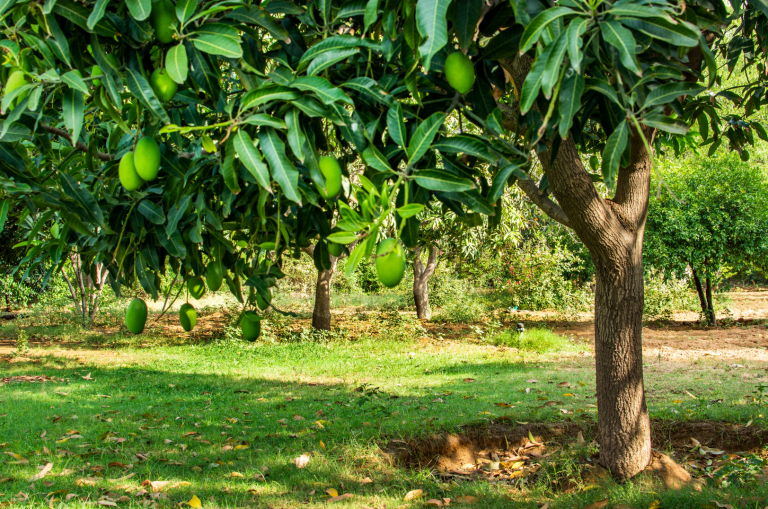
Mango farming is one of the most popular and profitable fruit cultivation businesses globally, but success depends on understanding the essential climate and soil requirements. These factors play a crucial role in the growth and yield of mango trees.
Mango trees, as tropical plants, thrive in warm, humid climates with temperatures ranging from 24°C to 27°C (75°F to 81°F). They require a minimum of 6 to 8 hours of direct sunlight daily for optimal growth and fruit production. Insufficient sunlight can lead to poor fruit quality and reduced yields.
Equally critical are the soil requirements for mango farming. Mango trees flourish in well-drained soils rich in organic matter, with a pH range of 5.5 to 7.5. The soil must retain moisture effectively, as regular watering is essential, particularly during the flowering and fruiting stages. Additionally, using fertilizers and manure is vital to maintaining soil fertility and ensuring high yields.
Key Points on Mango Farming:
- Mango trees thrive in warm and humid climates, with temperatures between 24°C and 27°C (75°F to 81°F).
- They require at least 6 to 8 hours of direct sunlight daily.
- Ideal soils for mango farming are well-drained, rich in organic matter, and have a pH of 5.5 to 7.5.
- The soil must retain moisture well, as regular watering is critical during key growth stages.
- Fertilizers and manure are vital for maintaining soil fertility and achieving high yields.
For instance, in India, a major mango-producing country, the ideal climate for mango farming is found in tropical and subtropical regions, with soils having a pH range of 6.0 to 7.5. In Florida, mango trees grow best in sandy soils that are well-drained and have a pH between 5.5 and 7.5.


